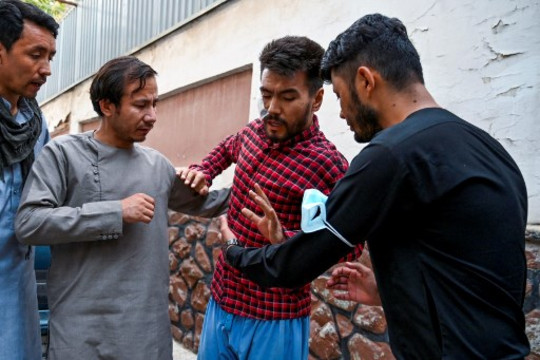Reports are escalating of Taliban militants detaining journalists, seizing their equipment and even subjecting individuals to torture or beatings. Over 7000 media workers have been affected by the takeover, with many prevented from working, in hiding and fearful for their lives and those of their families.
On September 8, the Taliban issued an order prohibiting unauthorised assembly and protests. The following day they instructed telecommunications providers to cut internet and mobile service in areas of Kabul.
IFJ secretary general Anthony Bellanger believes the Taliban is allowing a ‘grace period’ before attacks towards Afghan and international journalists intensify. “I believe what we will see emerge is an official media – a Taliban media – and no women. All other journalists will just disappear. It wasn’t easy before – and even before the Taliban took power, journalists were killed – but it is very bleak now,” said Bellanger.
Afghan journalist Ahmad Wahid Payman, who fled to Germany after the capture of Kabul, said that female journalists are now completely barred from all media activities, with colleagues in hiding and media and entertainment programs cancelled. “The Taliban are pretending to be tolerant in order to be recognized internationally, but there are countless examples of massive attacks," he said.
There are also serious concerns for journalists’ safety after the Taliban released approximately 1,000 serious criminals from Afghan prisons, who are now threatening reporters who covered their arrests and detention.
Afghan journalists have begun to speak out against the Taliban despite enduring fear and threats of violence, with more than 150 media workers signing an open letter to the United Nations calling for concrete action to save Afghanistan’s journalists.
The office of the United Nations High Commissioner for Human Rights also released a statement on September 10 calling on the Taliban to immediately “cease the use of force towards, and the arbitrary detention of, those exercising their right to peaceful assembly and the journalists covering the protests.”
The IFJ is continuing its special fundraising response for Afghanistan to the IFJ Safety Fund, much of which has already been distributed to assist journalists on the ground. Members from IFJ affiliates the Afghan Independent Journalists Association (AIJA) and Afghanistan National Journalists Union (ANJU) have been working tirelessly to provide support and guidance to media workers across the nation.
The IFJ said: “The situation in Afghanistan is growing increasingly dire for all media workers, with many journalists displaced due to the Taliban offensive, in hiding and without work. The IFJ stands in solidarity with its Afghan colleagues and calls on the Taliban to respect media freedom and the rights of journalists.”

